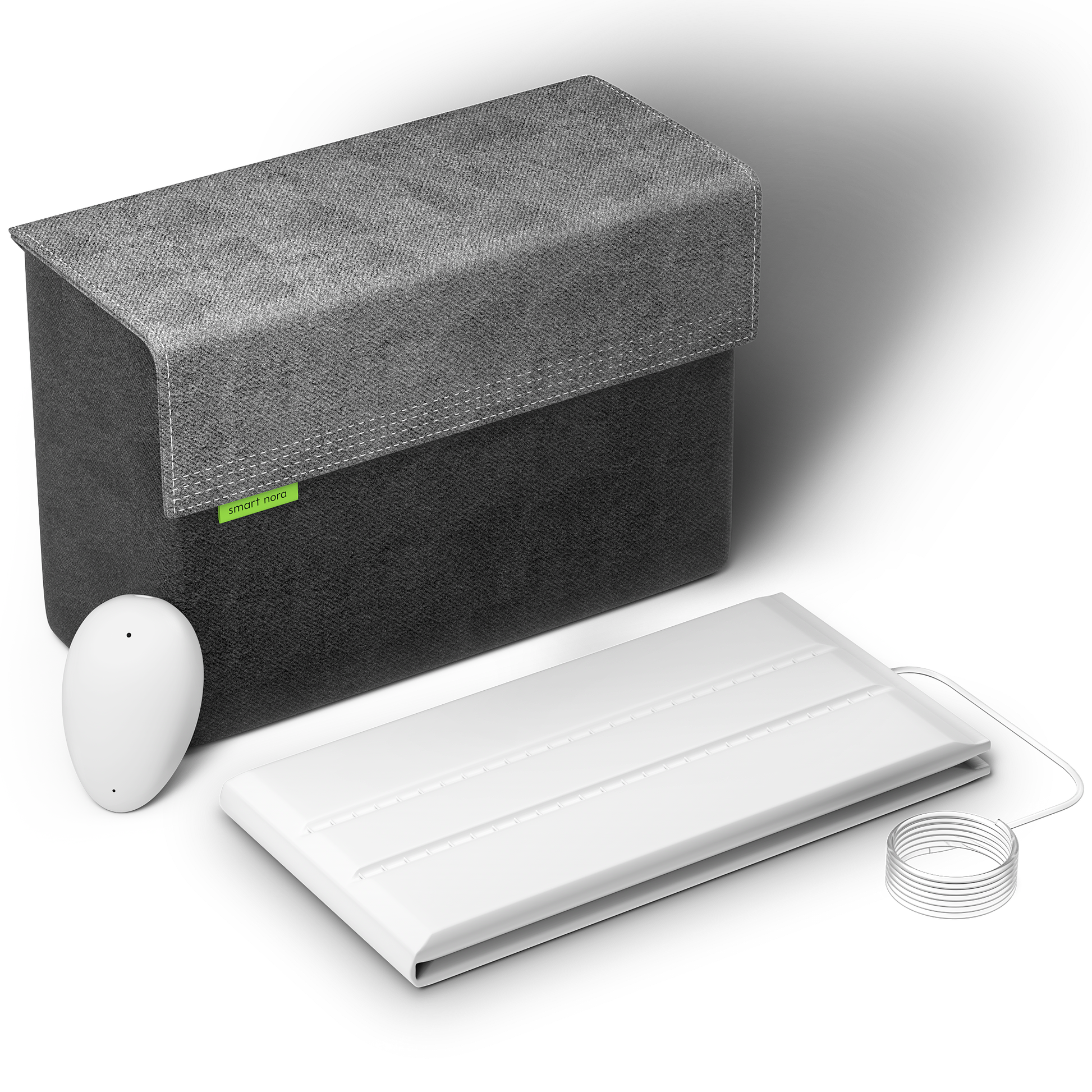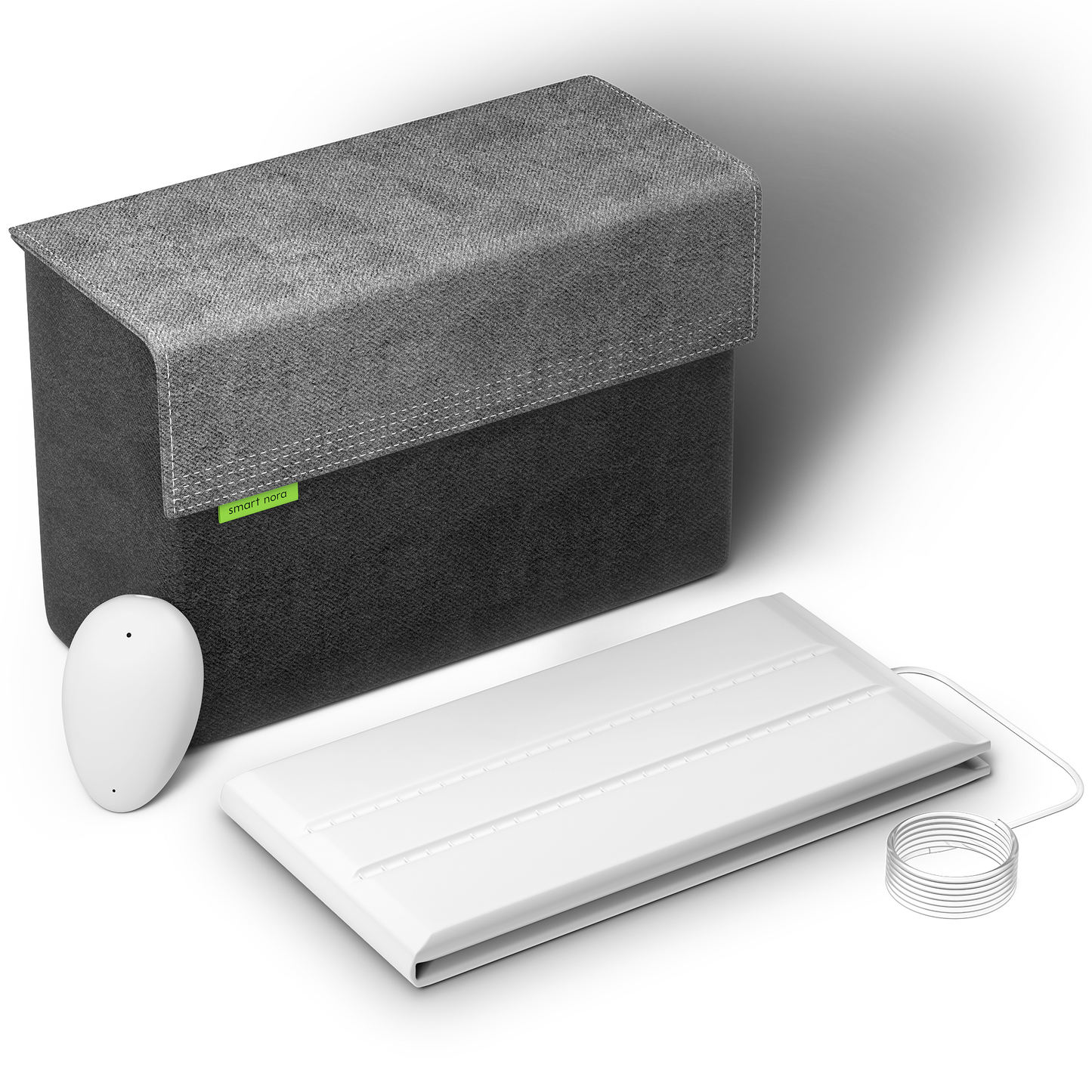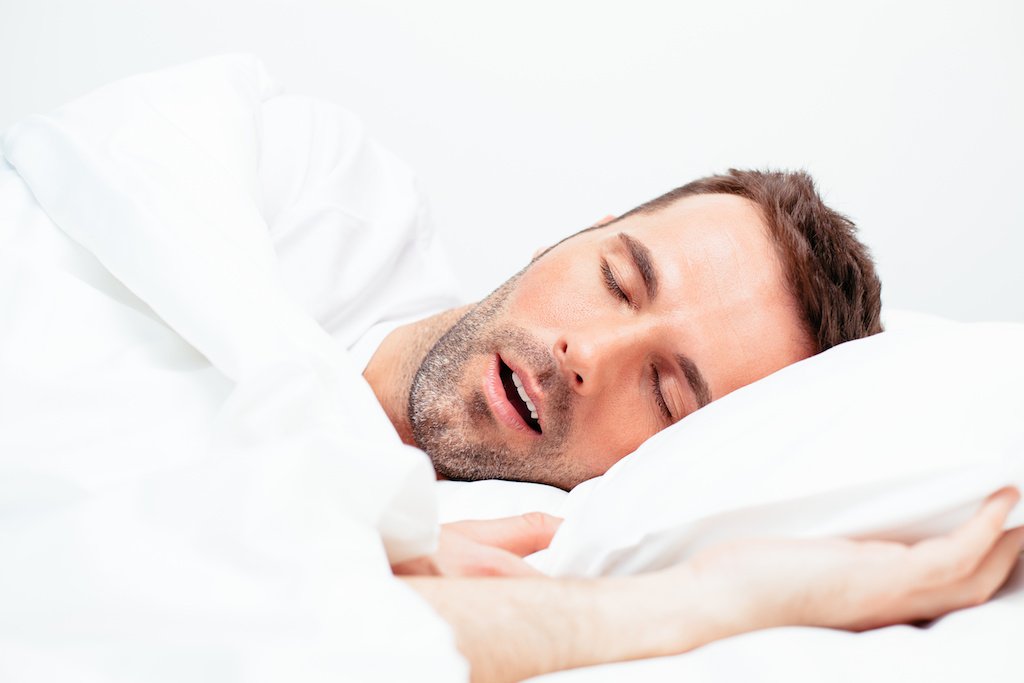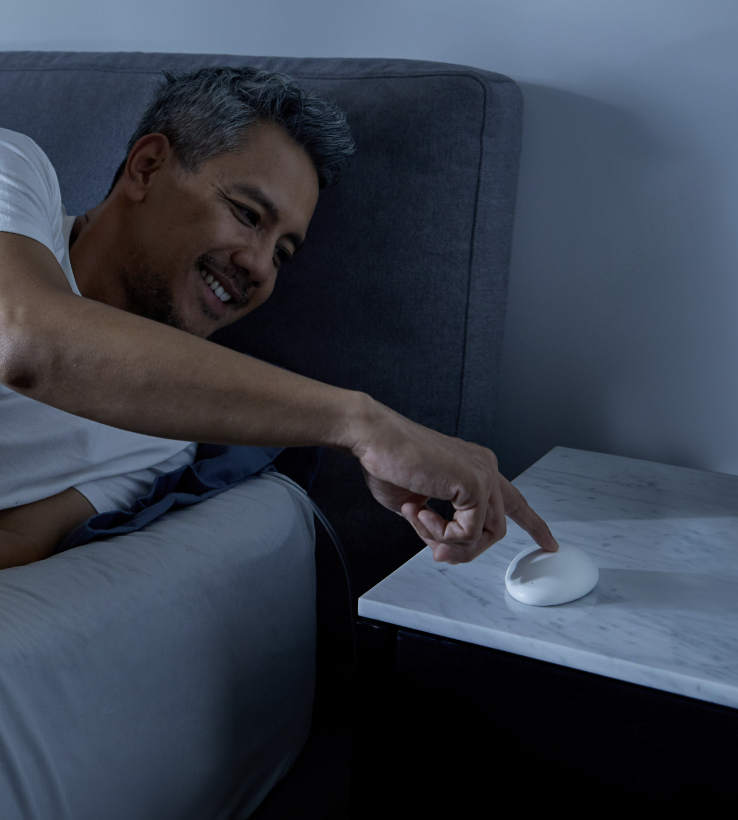Do you wake up with a dry mouth and bad breath? Has your partner commented that you sleep with your mouth wide open? Maybe they have even taken a video or a photo to show you? If so, chances are you are a mouth breather. It may be amusing for your partner to have fun at your expense but sleeping with an open mouth may be affecting the quality of your sleep and may also cause some health issues.
Mouth breathing can cause certain health issues and provoke sleep disturbances. The quality of your sleep can be affected if you sleep with your mouth open.
How does mouth breathing affect your sleep, exactly? Can you learn to breathe through your nose when you sleep?
Causes of Mouth Breathing
Normally, we breathe through our nose. We don’t pay too much attention to it during the day, but our nose is doing a fine job at filtering and moistening the air that we breathe in. Healthy people will breathe through their nose during the day and while they sleep.
Breathing through your mouth will get the oxygen to your lungs quickly and you may notice that you tend to do this when exercising. This is a natural reaction to the lack of oxygen and stress. A study concluded that mouth breathing increases oxygen load in the prefrontal cortex and can increase the risk of sleep disorders and attention deficit hyperactive disorder (ADHD).
Many things may cause you to temporarily breathe through your mouth. Most of the time it is because your nose is blocked, congested, or obstructed. Sometimes there is a genetic or physical factor that will also have you breathing through your mouth instead of your nose.
Medical issues
- Allergies
- Cold and flu
- Asthma
- Infections
Physical causes
- Deviated septum
- Jaw misalignment
- Enlarged tonsils
- Nasal polyps
Symptoms that You Are a Mouth Breather
You will know that you are a mouth breather if you sleep with a partner. This is usually something a partner will bring up. Mouth breathing usually causes snoring and other sleep problems that affect the partner’s sleep as well. You’ll be sure to hear about it!
If you sleep alone, take note of any of these symptoms you may experience. Other symptoms or signs that you are a mouth breather are:
- Waking up with a dry mouth
- Waking up coughing or choking
- Constant bad breath
- Jaw pain in the morning
- Fatigue and lack of energy during the day
- Sore throat when waking
- Dental or gum problems
Having these symptoms doesn’t necessarily mean that you breathe through your mouth when you sleep. These may be associated with other health issues. But if you have several of these signs, chances are you breathe through your mouth while you sleep.
Why Is Mouth Breathing a Problem?
Occasional Mouth breathing should not be problematic and normally nose breathing will resume once the problem is solved. Colds and other similar illnesses cause stuffy noses and will have you breathing through your mouth while you sleep. Once the cold is under control and has done its time, the mouth breathing stops.
On the other hand, if you are a regular mouth breather you may want to look into training yourself to unlearn the bad habit. Mouth breathing can have a negative impact on the quality of your sleep because it oftentimes causes you to snore or develop other sleep disturbances like sleep apnea.
Restful sleep involves about seven to eight hours of sleep with limited awake times. Snorers and sleep apnea sufferers often wake themselves up with the noise or with coughing and a choking sensation. Waking up several times during the night can prevent you from getting enough deep sleep that is required to restore your energy and immune system.
Mouth breathing can also cause other health issues like tooth decay, gum disease, and also provoke more serious jaw problems. Bad breath (halitosis) that often comes with mouth breathing can definitely have a negative impact on your life. There are just so many breath mints you can take in one day!
How to Stop Mouth Breathing
First, it’s important to determine why you breathe through your mouth when you sleep. Colds and other temporary discomfort will resolve itself or you can take over the counter medication to ease the symptoms.
- Determine why your nose is blocked or congested and try to open your nasal passages. Nasal sprays that contain antihistamines and decongestants can help open up the airways and also rid you of mucus buildup that is preventing you from breathing through your nose.
- Nasal strips and nasal dilators are helpful to open up your nostrils to let air flow more freely. These are easily bought at pharmacies and are quite inexpensive.
- A CPAP machine or other type of Positive Air Pressure therapy can be prescribed if you suffer from sleep apnea. These machines help push air into your lungs with regulated pressure and will keep your airways open. Sleep apnea sufferers often times are mouth breathers and can’t get restful sleep.
- Chin straps, mouthpieces, and dental guards can help keep your mouth shut while you sleep. Obviously, the blocked or obstructed nose issue needs to be taken care of first before you attempt to keep your mouth shut.
- An elevated pillow can also help you to close your mouth if you are a back sleeper and will help you resume nose breathing during the night.
- Breathing exercises exist to retrain you to breathe through your nose while you sleep. Try being conscious about your breathing before drifting off to sleep. Take several long breaths through your nose and remind yourself to keep your mouth shut.
- Sleeping on your side will also diminish the chances of your jaw receding and your mouth opening while you sleep. Get in the habit of sleeping on your side instead of your back. You may want to try body pillows if you are uncomfortable sleeping on your side.
Your doctor may recommend that you see a specialist if you have enlarged tonsils or other physical features that don’t allow you to breathe through your nose easily. Sometimes surgery is necessary to fix a serious problem.
When to See Your Doctor
There is no need to run to the doctor if your mouth breathing is caused by a common cold or other temporary illness. Simply drink more fluids and the mouth breathing and dry mouth will go away on its own.
You should consult with your doctor if you think that you have allergies or other types of health issues that may require more specific medication and treatment.
Dry mouth and bad breath will cause discomfort and if they don’t resolve after trying several solutions that we mentioned above, you should speak with your doctor. If left untreated, mouth breathing can develop into tooth decay, gum disease, and sleep deprivation.
Breathe Through Your Nose
The French Canadians have an expression “Respirer par le nez!” which literally means “breathe through your nose”, but they figuratively use it to express a way to calm down when in a stressful situation.
Inhale, exhale. Reprogramming yourself to breathe through your nose while you sleep can be done. It can take a while but you should be able to sleep with your mouth closed and have a better night’s sleep.
Restful sleep is essential and sometimes requires that you take action to attack any problems that will keep you from getting those restorative ZZZ’s.















